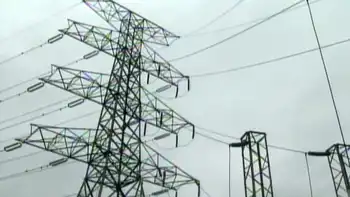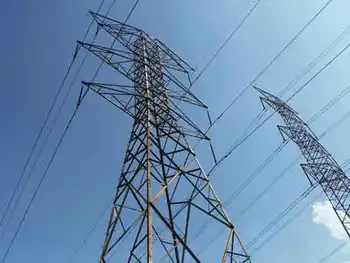Run on iodide pills for residents near reactors
By Toronto Star
Protective Relay Training - Basic
Our customized live online or in‑person group training can be delivered to your staff at your location.

- Live Online
- 12 hours Instructor-led
- Group Training Available
“There has been a bit of a rush today and yesterday,” Judy Gallagher, manager of Bay Ridges Pharmacy in Pickering, said. “One gentleman said he had been in an earthquake before and was just concerned after events in Japan.”
Japanese tsunami survivors who live near the four stricken nuclear reactors of the Fukushima Dai-ichi plant are being told to take potassium iodide tablets as a precaution against thyroid cancer.
Locally, “people just want peace of mind or to be prepared,” said Gallagher, who needs to restock after several requests. “Normally we only give out a bottle every six months.”
The so-called KI pills have long been available for free at several pharmacies to people who live or work within 10 kilometres of the Pickering and Darlington nuclear plants.
They work preventatively by filling the thyroid gland with nonradioactive iodine so thereÂ’s no room for radioactive iodine to accumulate. ItÂ’s then excreted in urine.
“The thyroid needs iodine to produce the thyroid hormone,” explained Alvin Powers, an endocrinologist and professor of molecular physiology and biophysics at Vanderbilt University in Nashville, Tenn.
“If there is radioactive iodide in anything we eat or drink it gets concentrated in the thyroid, stays there and emits radiation in the thyroid,” Powers said.
Children are considered the most vulnerable. After the 1986 Chernobyl nuclear accident, thyroid cancer rates in children in Belarus and Ukraine increased substantially.
Taken before exposure, potassium iodide can provide protection for 24 hours, and may also be beneficial taken within three or four hours after exposure. But it protects only against thyroid cancer, not other forms of radiation sickness.
Durham RegionÂ’s health department, which distributes the pills as a precautionary measure through five pharmacies as well as schools, daycare centres, emergency services and hospitals in the primary zone, reported increased calls to its helpline.
With an ongoing threat of radiation leaks in Japan, “I think it’s reasonable that people start thinking,” said Ken Gorman, director of the environmental health division.
But he was quick to quell concerns, saying no one is at risk from anything coming from that country and the likelihood of a similar situation happening here is “extremely low.”
He said thereÂ’s no risk outside the 10-kilometre radius. More information about the pills is available on the health departmentÂ’s webpage at durham.ca.
Doris Hopper, who lives three kilometres from PickeringÂ’s nuclear reactors, has kept pills on hand for years, on her pharmacistÂ’s advice.
“Events in Japan made me open them up and read the instructions, which I hadn’t done before,” she said. “We all should be educated and know what to do if a catastrophic event were to happen here.”
Courtice Pharmasave, a few kilometres northwest of Darlington, has experienced “a bit of panic,” owner Elaine Dias said. “We’ve had more calls asking if we carry the pills.”
In Vancouver, spooked British Columbians were also trying to protect themselves against potential radiation drift. Responding to reports of stockpiling on the west coast, Health Canada issued a statement saying it “does not recommend Canadians take any specific actions to protect themselves from a radiological emergency, including the purchase or consumption of potassium iodide.”
“There is definitely a panic,” scoffed pharmacist Cristina Alarcon. “How big is the ocean? I think it's a little bit ridiculous.”
Potassium iodide does not protect against another potential hazard, cesium, which was released at Chernobyl. Cesium is absorbed throughout the body and remains in organs, tissue and the environment much longer. BBC News reports the level released in Japan so far was less than half the amount that would cause radiation sickness in a person exposed to it, but enough to depress production of blood cells in the bone marrow and raise the lifetime fatal cancer risk by 2 to 4 per cent.
Health officials said there was no risk to Canadians from the Japanese nuclear plants because any radiation would be dispersed during the five or six days it would take nuclear particles to cross the Pacific.











